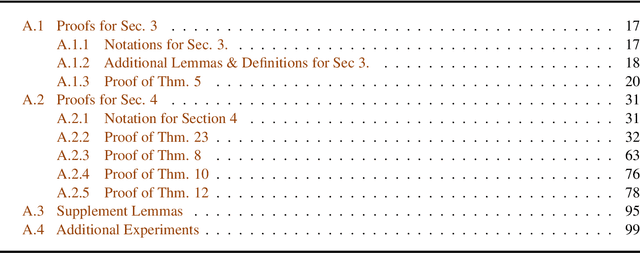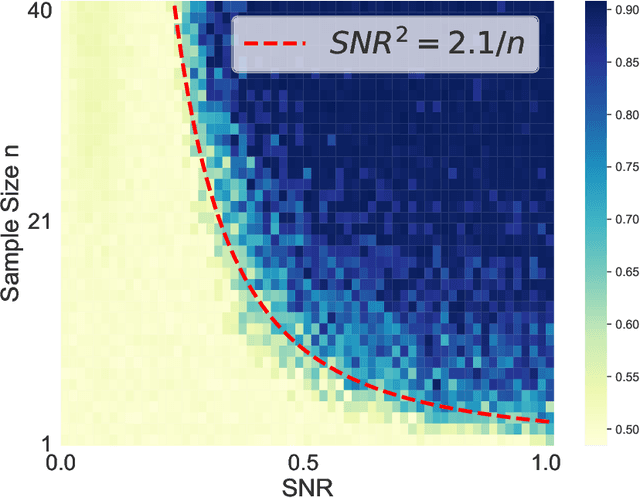Roey Magen
Benign Overfitting in Single-Head Attention
Oct 10, 2024



Abstract:The phenomenon of benign overfitting, where a trained neural network perfectly fits noisy training data but still achieves near-optimal test performance, has been extensively studied in recent years for linear models and fully-connected/convolutional networks. In this work, we study benign overfitting in a single-head softmax attention model, which is the fundamental building block of Transformers. We prove that under appropriate conditions, the model exhibits benign overfitting in a classification setting already after two steps of gradient descent. Moreover, we show conditions where a minimum-norm/maximum-margin interpolator exhibits benign overfitting. We study how the overfitting behavior depends on the signal-to-noise ratio (SNR) of the data distribution, namely, the ratio between norms of signal and noise tokens, and prove that a sufficiently large SNR is both necessary and sufficient for benign overfitting.
Initialization-Dependent Sample Complexity of Linear Predictors and Neural Networks
May 25, 2023Abstract:We provide several new results on the sample complexity of vector-valued linear predictors (parameterized by a matrix), and more generally neural networks. Focusing on size-independent bounds, where only the Frobenius norm distance of the parameters from some fixed reference matrix $W_0$ is controlled, we show that the sample complexity behavior can be surprisingly different than what we may expect considering the well-studied setting of scalar-valued linear predictors. This also leads to new sample complexity bounds for feed-forward neural networks, tackling some open questions in the literature, and establishing a new convex linear prediction problem that is provably learnable without uniform convergence.
 Add to Chrome
Add to Chrome Add to Firefox
Add to Firefox Add to Edge
Add to Edge